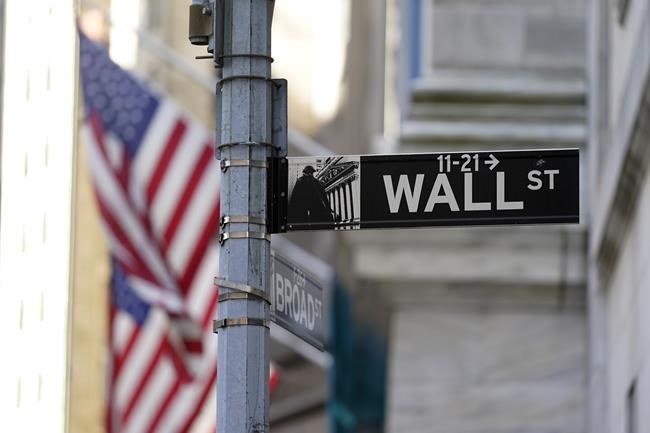NEW YORK ŌĆö Stocks fell on Wall StreetŌĆÖs first trading day of 2023 after closing out its worst year since 2008. Investors will be closely watching moves by central banks in coming months to fight inflation with higher interest rates, all the while bracing for the recession and higher unemployment that could result from those policies. This week markets are looking ahead to a monthly report on the U.S. job market that could provide clues on where the economy is headed. The S&P 500 index fell 0.4% Tuesday. The Dow Jones Industrial Average closed just a touch lower and the Nasdaq fell 0.8%.
THIS IS A BREAKING NEWS UPDATE. APŌĆÖs earlier story follows below.
Stocks gave up an early gain and stumbled Tuesday on Wall Street's first trading day of 2023 after closing out its worst year since 2008.
The S&P 500 fell 0.5% as of 3:13 p.m. Eastern. The Dow Jones Industrial Average fell 77 points, or 0.2%, to 33,075 and the Nasdaq fell 0.7%.
Long-term bond yields fell significantly. The yield on the 10-year Treasury, which influences mortgage rates, fell to 3.79% from 3.88% late Friday. Stock and bond markets were closed Monday for the observed New Year's Day holiday.
Markets in Europe and Asia gained ground.
Technology stocks were among the biggest weights on the market. Apple fell 4.2%.
U.S. oil prices settled 4.1% lower, weighing down energy stocks. Hess fell 5.2%.
Facebook parent Meta Platforms rose 4.3% to lead a rally in communications services stocks. Gains in several big banks and other financial stocks also helped keep the market's losses in check. Wells Fargo rose 1.4%.
Tesla plunged 12.6% after the electric vehicle maker's 2022 sales disappointed investors.
Gold producer Newmont rose 4.5% for one of the biggest gains in the S&P 500 as prices for the precious metal rose.
Investors are opening a new year with the same concerns that dominated markets in 2022. Inflation is easing, but remains stubbornly hot. That has prompted the Federal Reserve to remain aggressive.
The central bank, along with others worldwide, has been raising interest rates to slow economic growth. That has left Wall Street bracing for the recession and higher unemployment that could result from those policies.
The Fed will release minutes from its December policy meeting on Wednesday, potentially giving investors more insight into its decision-making process and thoughts heading into 2023. The central bank's next policy decision on interest rates is set for Feb. 1.
The FedŌĆÖs key lending rate stands at a range of 4.25% to 4.5% after rocketing from a range of 0% to 0.25% at the beginning of 2022. The U.S. central bank forecasts that it will reach a range of 5% to 5.25% by the end of 2023 and it currently doesn't call for a rate cut before 2024.
Investors are looking ahead this week to several updates on the employment market, which has been a strong area of the broader economy. That has helped buffer the economy from a recession, analysts have said, but it also makes the Fed's fight against inflation more difficult and raises that risk that it could go too far and bring on a recession.
The government will release a report Wednesday on job openings for November, followed by a weekly report on unemployment on Thursday. The broader and closely-watched monthly report on employment, for December, will be released on Friday.
Wall Street is also waiting on the latest round of corporate earnings reports, which will start flowing heavily around the middle of January. Analysts polled by FactSet expect earnings for companies in the S&P 500 to broadly slip during the fourth quarter and remain flat for the first half of 2023.
Damian J. Troise And Alex Veiga, The Associated Press



